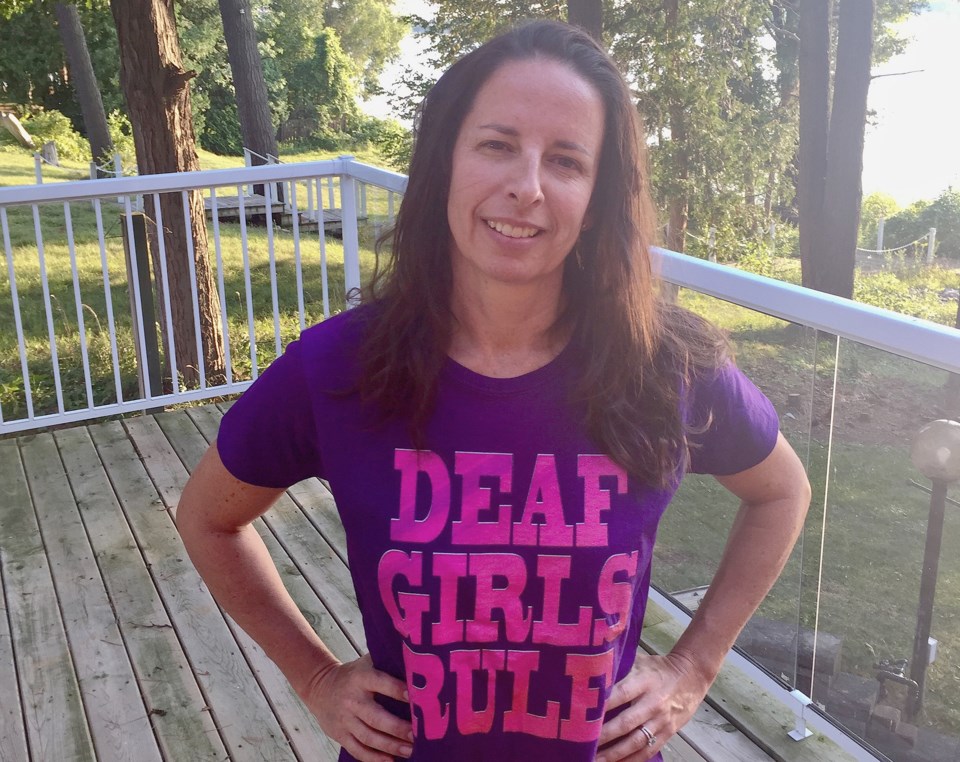An Orillia woman is preparing to make an appearance before the Ontario Human Rights Tribunal after filing a complaint against Orillia Soldiers’ Memorial Hospital (OSMH).
Melissa McKee will head to Toronto Aug. 30 for a three-hour mediation/adjudication hearing at the Social Justice Tribunals Ontario/Human Rights Tribunal of Ontario. The main issue for McKee is the way OSMH’s emergency department announces patients' last names in the wait room.
For a few years, McKee, who is deaf, has been requesting the hospital better accommodate patients who are deaf or hard of hearing. She wants to see an electronic communication board in the ER wait room.
Before the hearing begins at the end of the month, the adjudicator might ask the parties involved if they want to try mediation/adjudication. If they agree, the adjudicator will attempt to resolve the matter.
If mediation fails, the hearing will proceed.
It has been a long process to get to this point, said McKee, who filed the human rights complaint near the end of January.
“Filing a human rights complaint is a serious, time-consuming process, understandably,” she said. “The application alone took me nearly four hours to complete, and I have strong language skills.”
McKee is not seeking financial compensation. She simply wants a resolution.
“If we cannot come to a mutually acceptable agreement on Aug. 30, I believe the next step is a hearing to decide whether or not discrimination occurred,” she said.
Depending on the length of the hearing, a decision could take anywhere from three to six months.
“Ideally, I would like to see an electronic communication board in the OSMH ER wait room to communicate patient names as a visual notification to enter the appropriate treatment door/area,” McKee told OrilliaMatters. “Not only would this benefit DHH (deaf, and hard of hearing) patients; it would benefit everyone with the exception of the legally blind. They will still require an auditory component.”
“Although I have offered to pay for the installation and maintenance of this system, I’m open to alternatives,” she continued. “The community and staff have suggested pagers such as those at Shoppers Drug Mart and The Keg. They can have either a vibrate or LED visual alert. I think this would be a great tool to alert all patients in the ER wait room, and give them an opportunity to go to the cafeteria or wait nearby until they are paged. Again, I’ll pay for it. But the status quo is unacceptable.”
In an earlier interview, Terry Dyni, community relations director at OSMH, explained what process is currently used for deaf and hard-of-hearing patients.
“When a deaf or hard-of-hearing person is waiting in our emergency department, we have a process in place whereby, at triage, the patient’s chart is tagged with a prominent sticker designed to alert staff to seek out and approach the patient in person whenever communication is required,” he said. “The general practice of calling out the person’s name as a method of communication is not to be used. Admittedly, we’ve had some instances where we didn’t follow that process as well as we should have and we continue to address that through ongoing education and reminders.”
McKee, who previously served on the hospital’s accessibility advisory committee, has some advice for people with disabilities.
“You have a right to access public services in a dignified manner. If you come across obstacles, do everything in your power to communicate ways around it to the service providers,” she said. “Don’t feel guilty for doing it. Change is healthy. And the world will be a better place thanks to your efforts.”
She also has some advice for business owners.
“Check your email. Offer live chat options on your websites. Be open to texting your customers. Use visual tools. And always ask how best to communicate with your DHH customers. Some of us speech read. Some of us communicate in American Sign Language. Some of us wear hearing aids. Some of us wear cochlear implants. Some of us do it all.”
For more information about the tribunal application and hearing process, click here.



